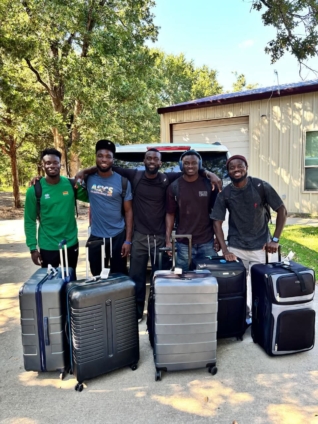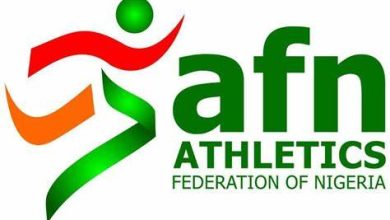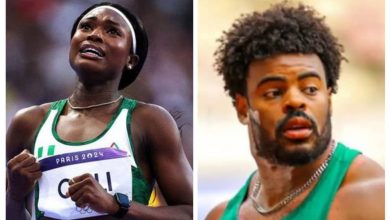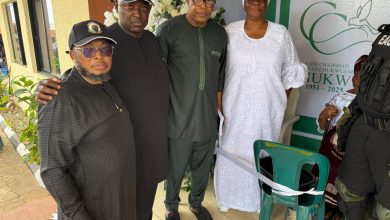As Ghana Camps in Texas, AFN Faces Mounting Pressure Ahead of World Championships

With the countdown to the 20th World Athletics Championships in Tokyo entering its final stretch, the Athletics Federation of Nigeria (AFN), under the leadership of Tonobok Okowa, is grappling with the possibility of setting a deeply unwanted record: failing to qualify a single relay team for the global event—a first in Nigeria’s storied athletics history.
While Nigeria scrambles to salvage its qualification hopes, Team Ghana has taken decisive steps. On Sunday, Ghana’s all-sprinter squad—featuring the nation’s fastest men in 2025—arrived in Texas for a two-week training camp at Texas A&M University.
The team is led by Abdul Rasheed-Saminu, who clocked a blistering 9.86 seconds in May to become Ghana’s fastest man ever over 100 meters. He further improved his time to 9.84 (+1.5) in July at Power Springs.
Joining him are standout sprinters Benjamin Azamati (9.98s at Sherman Oaks), Ibrahim Fuseini, Barnabas Aggerh, Mustapha Bokpin, and Isaac Botsio—all of whom have posted Ghana’s top 100m times this season.
Azamati is expected to join the camp after his August 18 meet in Europe. The team is training under the guidance of Coach George Pincock, head of track and field at Texas A&M.
Ghana’s 4x100m relay team has already secured its ticket to Tokyo, having qualified in May with a time of 38.32 seconds.
In stark contrast, Nigeria’s relay prospects remain uncertain. Despite the looming August 24 qualification deadline, the AFN has struggled to assemble a competitive team or secure adequate funding for participation in key meets across Africa or Europe.
Observers have expressed concern over the federation’s inability to mobilize resources or athletes, especially when other African nations such as South Africa and Zimbabwe have established training camps abroad to fine-tune their relay squads.
The situation has raised serious questions about Nigeria’s preparedness and strategic planning, with critics pointing to a lack of vision and urgency within the AFN.
As the clock ticks toward Tokyo, the pressure mounts—not just to qualify, but to restore confidence in Nigeria’s place on the global athletics stage.




